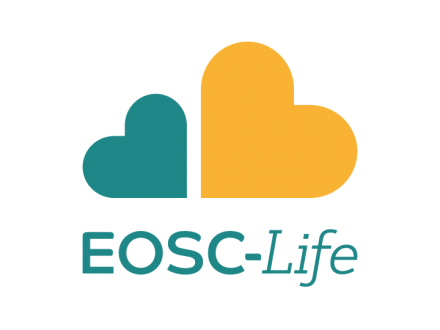
10/04/2019
Jordi Mestres takes part in the European project EOSC-Life which aims to develop an open collaborative space for digital biology
The project EOSC-Life aims to create an open collaborative digital space for life science in the European Open Science Cloud (EOSC). EOSC-Life brings together the 13 european research infrastructures in the Health and Food domain of the ESFRI Roadmap and is funded by H2020 for the period 2019-2023. The project involves research groups from 46 European academic institutions. These include the GRIB Systems Pharmacology research group (IMIM-UPF) led by Jordi Mestres, which is helping develop collaborative tools for integrating and analysing all kinds of data in the field of life sciences.
According to Dr. Mestres: "Taking part in this macroproject is a unique opportunity to contribute to the development of open, interoperable and reusable computational tools across all strategic research infrastructures in Europe. The potential impact of this initiative is enormous and goes beyond the European level. There is a growing willingness to share data, to properly annotate and integrate it, and to develop tools for analysing it, to facilitate open access and use by the entire scientific community."
Life science research directly addresses key societal challenges and drives the bio-economy. To keep European Life Science at the forefront of global advances and to deepen our understanding of life and disease, the data, digital services and advanced facilities vital for life science research must be findable, accessible, interoperable, reusable (FAIR) across scientific disciplines and national boundaries. FAIR data and services improves reproducibility of biomedical research, drives new scientific discoveries and enables any researcher in Europe and across the world to access and use them.
In EOSC-Life the research infrastructures will publish data from facilities and data resources in the EOSC and link these FAIR databases to open and reusable Tools and Workflows accessible to users via Europe's national and international life-science clouds. EOSC-Life will also connect users across Europe to a single login authentication and resource authorisation system and develop data policies needed to preserve and deepen the trust given by research participants and patients volunteering their data and samples.
This means that scientists will have access to advanced data services, technology platforms, samples and support services throughout the European Research Area and that the resulting data will be openly accessible for reuse through the European Open Science Cloud in full compliance with all ethical, regulatory and legal requirements.
This new ecosystem of life science data and tools will also serve as an open platform where the community of developers and software engineers can collaboratively develop and publish novel reusable and reproducible workflows.
Niklas Blomberg, Director of ELIXIR and Coordinator of the project said: "EOSC-Life will bring together the resources, tools, skills and expertise necessary to transform the fragmented research data landscape into an open space for digital biology. Our ultimate goal is to maximise the collective potential of biomedical ESFRI research infrastructures and the researchers using them. By the end of this project EOSC-Life will be established as the new norm for digital biology in Europe - accessible by Europe's 500,000 life scientists."
To achieve this, EOSC-Life will run a series of open calls for user research which will allow Europe's large research community to adopt advanced data management practice and access data integration and large-scale analysis tools in the cloud. In addition to academic users, the project will also specifically reach out to industry, SMEs and regional bio-clusters and explore new models to develop the scientific and innovation potential of FAIR data in industry led research projects.
EOSC-Life project is coordinated by ELIXIR, the ESFRI Research Infrastructure for biological data. The consortium of 13 Research Infrastructures cover all aspects of life science research and all life science domains.
Erik Steinfelder, Director General, BBMRI-ERIC: "If you really want to have an impact on personalised medicine, you need to take a look at the bigger picture. This means having more data sources, which could help to better understand why things happen when they do, to whom, and what could be the trigger. EOSC-Life is a good start to unleashing that potential."
Basic figures
- Project Duration: 1 March 2019 - 28 February 2023 (48 months)
- Partners: 46 Partners, 17 Linked Third parties, 12 Third parties
- Resources: 23.7 M€, 11 Work Packages, 34 Deliverables



